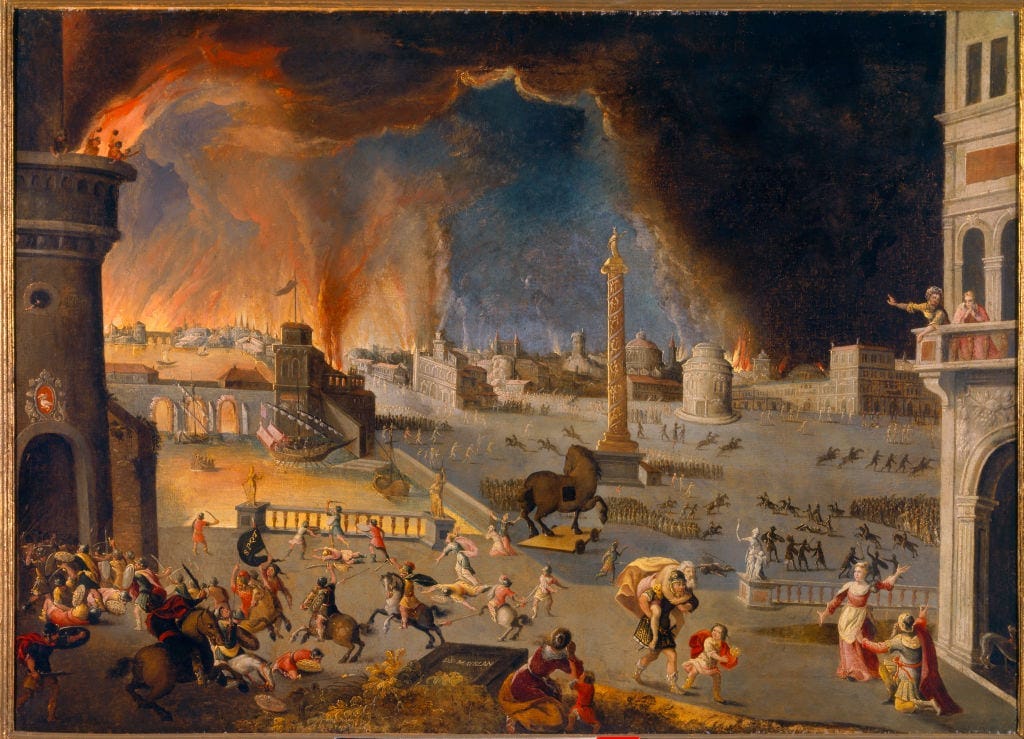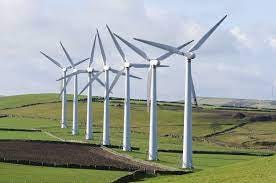Climate change has become a very hot topic. According to the prognosticators, global warming will soon cause more frequent and violent storms, draughts, and wildfires, and all the glaciers will melt and the seas will rise and flood coastal cities around the world.
About three years ago, left-wing politicians, led by Alexandria Ocasio-Cortez (aka "AOC"), were claiming that if we don't do something about it quickly, then all life on earth will die in a few years. And so, the Biden Administration has passed the Inflation Stimulation Act. Oh, excuse me, the “Inflation Reduction Act”. This aptly-named bill embarks on, among other goals, a Quixotic quest to mitigate climate change (note: other nations around the globe, meanwhile, are doing likewise).
Today your favorite blogger will look at this whole dire climate change thing with his usual skepticism. To begin, let us dissect this issue, and understand that it is not one, but is actually three separate issues:
Issue #1: Is the Earth getting hotter? Answer: probably yes.
Issue #2: If the Earth is indeed getting hotter, how much of it (if any) is caused by human activity? Answer: hard to say (more on this later.)
Issue #3: If man is indeed a major contributor to global warming, then what is the role of government?
And there lies the rub. The leftist-liberals skip completely over Issue #1 and Issue #2 and make a beeline for Issue #3, and scream that only Big Government can save us from catastrophe, and anyone who disagrees is a global change "denier".
I'm not a climate change denier; I'm a big-government denier.
For all of those out there who believe that government is the solution, government is the answer, government knows best, government can solve all problems, government is always right, government never makes mistakes, then global warming IS the nirvana of made-to-order issues to justify their eternal goal of having government in control of everything and everybody. After all, nobody wants to see Miami sink into the ocean.
So, the Inflation Stimulation Reduction Act will attempt to phase out the burning of fossil fuels and promote “Green Energy.” Sounds like a great idea, right? The problem is that the whole world runs on fossil fuels. Worldwide, about 80% of our energy comes from it. That’s a helluva lot of energy production to redirect. Assuming government can even do that, they would successfully plunge most of humanity back into the Dark Ages.
All the other potential energy sources have their limitations and drawbacks. Solar and wind only work when the sun shines or the wind blows. Ironically, some of these “Green” energy sources come with their own environmental and societal problems. Solar, wind, biofuels, and hydropower require or destroy vast amounts of land. Biofuels consume what would otherwise be food. Hydropower kills migrating fish. Windmills kill migrating birds, and besides, are aesthetically displeasing. And there is no truly environmentally-friendly way to store electrical energy, once you consider the entire life-cycle of a battery, including the mining, manufacture, transportation, and disposal. Nuclear energy may be a potentially viable substitute, but its main problem is bad PR, not technical issues. Bottom line: there simply is no Silver Bullet energy source that does it all, cleanly, efficiently, and reliably.
Now let us back up to Issue #2 above: How much of the Earth's global warming is caused by man? This is a difficult question to answer because the Earth's climate, like the economy, is influenced by many, many things, and it's not possible to set up a "controlled test experiment" to isolate and measure each factor.
But know that, for all of Earth's history, climate has been cyclical. Global climate and ice ages and such are caused by many things, including tectonic movements, changes in ocean currents, variations in the Earth's orbit or the sun's output, and even some wobble in the Earth's rotation.
I remember as a schoolboy growing up in the 1960s how our science books all warned us that the Earth will experience another ice age someday, and it's a matter of when, not if. I guess now they've changed their mind.
And then there are volcanos. Granted, human activity dwarfs volcano emissions, but volcanoes still do spit out an awful lot carbon dioxide and other gases and things. Also, there is some evidence that volcanos underneath Antarctica are melting the ice sheets from below.
Furthermore, there is some speculation that warmer temperatures could increase the amount of water vapor in the atmosphere, which increases the cloud cover, which reflects more sunlight, which induces a cooling effect. This means that, in essence, the Earth is pretty self-regulating (granted, the jury is still out on this one).
And as I stated in my article Internal Combustion Blues, if government truly wants to reduce emissions from road vehicles, there’s a much better way than trying to force us all into electric cars: just quit paving more roads and highways.
Actually, of all the Earth-damaging things that humans do, the emissions from burning fossil fuels is not the worst. My vote goes to plastics.
Worldwide, we humans now produce about 300 million tons of plastic every year. Unlike CO2, it never degrades or is absorbed by plants. Its value – that it is practically indestructible – is also its curse. A lot of it ends up in the ocean (the main culprits are Asian developing nations), where it just gets broken up into smaller and smaller pieces and then is ingested by fish and other marine creatures. If the big-government crowd want to show that they truly care about saving the planet, and not just grabbing more power, then they should refocus their efforts to reducing the proliferation of plastic.
And finally, PUH-LEASE spare me the doomsday talk about the world coming to an end, or running out of energy, or food, whatever, on such-and-such a date. We've all heard the Chicken Little story one too many times before.











"We've all heard the Chicken Little story one too many times before."
Actually, we hear it over and over and over again. I'm with you about plastics. Go into a Home Deopt and stroll down the isles. You'll see numerous packages of items in plastic that is not recycleable (which is itself not kind to the environment) and could easily be made of non-plastic material. Cheaper? Probably initially, but in the longer term harder to deal with down the line. It's about the disposable society. Convenient today, but a major issue long-term.